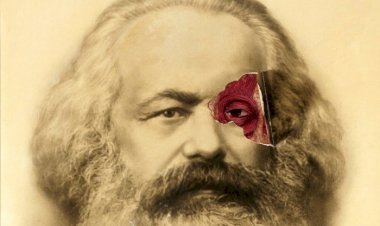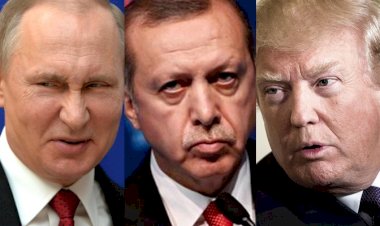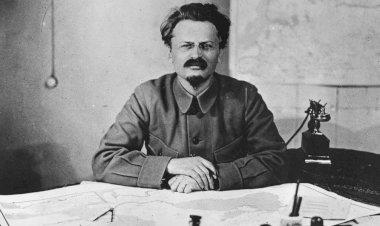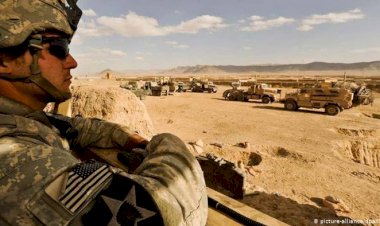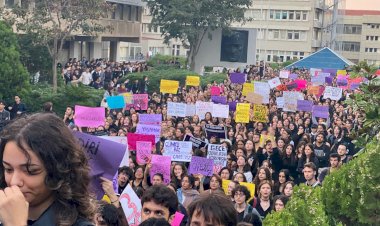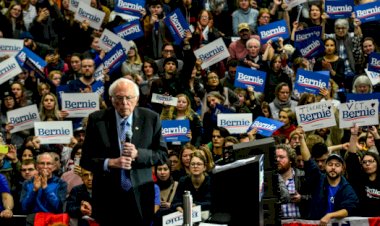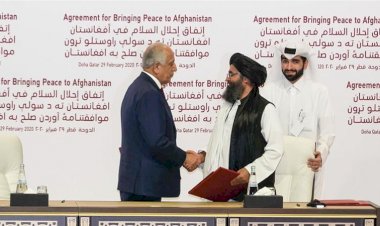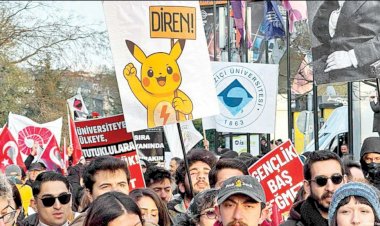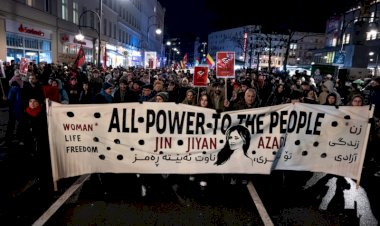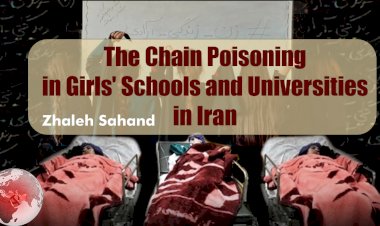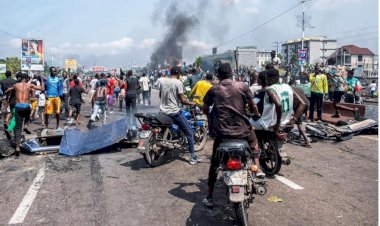What is imperialism? Are China and Russia Imperialist?
Since our own ruling class is in NATO, we will undoubtedly criticize NATO and the NATOists in the harshest way and continue our struggle against them. But this does not mean that we will be Eurasianist.
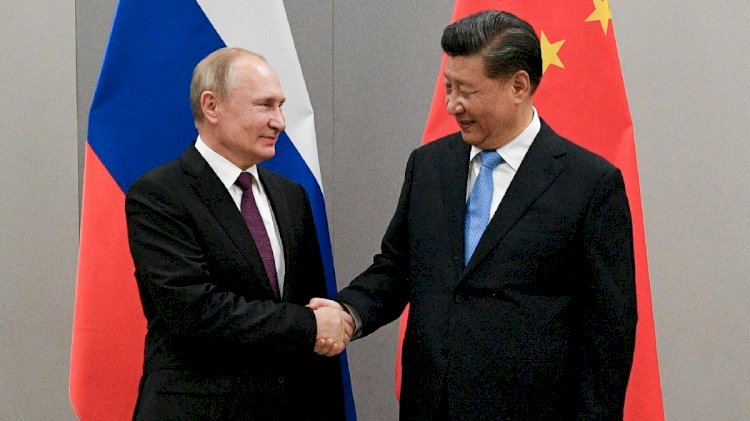
The war in Ukraine has grown so much beyond everyone's expectations that the whole world is feeling the heat of war nowadays. Are we going back to the era of imperialist extremism? While Putin is attempting to invade the whole of Ukraine, Western imperialists are laying many cards on the table at the same time to make Russia pay for it. Russia is racing against time to accelerate its progress inside Ukraine, on the other hand, it reminds NATO of its nuclear card.
While some bewildered who fall into the trap of liberal democracy keep asking "We are in 2022, is that what's going to happen?”, the war-driven nature of imperialism will continue to show itself again and again after the 2008 crisis that shook the world.
The world is a more unstable place in the global crisis conditions, that is, when the profit doesn’t grow on trees. Imperialist competition will intensify for the markets, technological developments, energy resources and to stay on top of world imperialism as it provides great economic advantages, for that turn into loot. And tensions that sometimes lead to wars will be seen more frequently and will take more dangerous forms.
Today, along with the USA, Russia and China are at the center of global tensions. The USA has already declared its strategic priority as the Pacific region during the Biden era. China's economic, scientific and military breakthroughs are rapidly eroding the United States' position as the world's sole superpower. On the other hand, Russia, which has been recovering militarily and economically for the last 25 years, is making a strong return not only to the former USSR countries but also to the Middle East, taking advantage of the USA's shifting its forces to the Asia Pacific region.
While radical changes are taking place in the hierarchy of world imperialism, unbelievable analyzes of imperialism are being made in Turkey and in the world, explaining that China and Russia are "non-imperialist", "semi-colonial", "peripheral" countries. In order to take a revolutionary stance in the last war and future tensions, we have to understand imperialism correctly and give correct answers to the question of whether China and Russia are imperialists or not.
Defining Imperialism
Imperialism is simply understood as a global order of domination. Yes, throughout history, great powers/states/empires ruled over the smaller ones but there are some features that gave birth to imperialism at a certain stage in history and made it a different phenomenon.
Revolutionary theorists such as Lenin and Bukharin, who gave the concept of imperialism its current content, did not equate imperialism with the foreign policy of this or that state, the policy of one of the fractions of the capitalist class (financial capital), the policy of conquest or colonialism. For Lenin, who established the link between imperialism and capitalism, imperialism represented the highest stage of capitalism, the transformation of capitalism into a global system under the domination of monopolies. Lenin characterized imperialism as the monopolistic phase of capitalism. This phase also marked the completion of the concentration and centralization of capital, and the transformation of capitalism from a system prevailing in one part of Europe into a world system.
Imperialism is based on a contradictory development process created by the capitalist mode of production. On the one hand, capital has national footing; the nation-state is the protector of the general interests of capital in intra-class and inter-class competition. On the other hand, the market for which the capitals competed has a global character.
Imperialism expresses the system of international economic and geopolitical competition of nation-states that acts to protect the most general interests of their own capital. The geopolitical competition here is also subordinate to the spirit of capitalist relations of production; behind the competition for territory and influence is the dominance of energy resources and the goal of obtaining the economic advantages brought by regional-global hegemony. Imperialist competition takes a military and political form as well as an economic one; eventually extends to wars.
While addressing the subject of imperialism, it should be emphasized that the law of uneven and combined development. Countries developed unevenly in the military, economic or political fields. This inequality exists not only between the most advanced and the laggards, but also among the big forces of imperialism. Lenin conceived imperialism as a hierarchical world system; He put them in a hierarchical order, considering that even the Great Powers of the time were not self-equal: “1- Three chief forces (completely independent): Great Britain, Germany, USA; 2- Runners: France, Russia, Japan; 3- Italy, Austria-Hungary.” (“Notebooks on Imperialism”) The issue of combined development can be exemplified as the fact that the technical progress achieved worldwide is taken directly by the laggards and turned into a tool for leapfrogging – see USA and Japan – or the advancement/recession of a power in the imperialist hierarchy depends not only on the situation of its own dynamics but also on the situation of other global powers.
Are China and Russia Imperialists?
Today's most salient questions are: How to position China and Russia in the imperialist hierarchy? Or, which criteria should be taken as reference while positioning Russia and China?
When it comes to the analysis of imperialism, Lenin is the most applied theorician among the left; but by destroying Lenin's theory. You might think that Lenin's book on Imperialism is the holy book; He writes verses that cannot even be thought to change. Some use Lenin to mutter: “Where is the capital outflow to define them as imperialists?”
We have no need for mechanical-minded theorists chasing dogmatic formulas in the name of Marxism. The dialectical method, in which Marxism is used to comprehend the world, examines a phenomenon, together with the conditions in which it emerged and by considering its development. To freeze phenomena by separating them from the whole in which they are shaped, from the relations and contradictions that create it, would be a rejection of the dialectical method. To look at Lenin's theory of imperialism from this perspective; It is necessary to consider the relations that created imperialism and the forms it has taken today. Otherwise, you will throw aside the spirit of the theory and turn the articles developed by Lenin in his Marxist analysis of imperialism into a creed. To understand whether a power is imperialist or not, if you stick to the data of "capital export"; you become an updated version of the economists that Lenin most fought against. However, Tsarist Russia, which Lenin and Bolsheviks described as imperialist, did not have a net capital export between 1881 and 1914. The foreign investment Russia received from Western imperialist countries was considerably higher than Russia's foreign investments. Russia was not capable of investing a significant amount abroad; it was far behind its imperialist rivals. Italy, Austria-Hungary and Japan, whom Lenin described as imperialist, either had limited capital exports or had no net capital exports at all. But since Lenin did not reduce imperialism to the volume of capital export, he did not hesitate describing these countries imperialist. For Lenin, imperialism was essentially the beginning of the era of monopolistic capitalism, and as a result of this development, the emergence of an economic and geopolitical competition order that brought wars with it.
Today, following in the footsteps of Lenin's understanding of imperialism requires performing an analysis by looking at the sum of the economic, political and military positions in the hierarchy of global countries without being stuck on a single economic criterion while positioning the countries in the imperialist hierarchy.
China’s Position
Although it is not possible to understand those who still describe China as a "semi-colonial", which showed a gradual development after the 2008 crisis and overtaken the USA in terms of industrial production, let's give answers to their arguments. Those who characterize China as a "peripheral", "semi-colonial" or "non-imperialist" country have three prominent arguments. The first is that China originally exports commodities; the claim that there is no capital export. Another is the argument that the multinational companies that originally make their production there benefits from the economic development in China and the super profits are moved to the West, the homeland of these multinational companies. The last argument began to be abandoned because it has been no longer tenable. The claim that China produces labor intensively and that it is not strong enough to compete with the West in areas such as patent-technology.
If we start with the issue of capital outflow we can say that there are two basic forms of capital export: export of productive capital and export of debt capital.
The most notable response to those who claim that China has a commodity-export-centered economy must be the "Belt and Road Initiative", scheduled for completion in 2050. Within the scope of this project, it is thought that 100 trillion dollars will be spent for infrastructure investments to be made in dozens of countries. China has invested trillions of dollars to build roads, bridges, ports and hospitals in approximately 163 countries, including many countries in Africa and Central Asia, under the program that has been running since 2013. Since the announcement of the Belt and Road Project in 2013, China has lent around $1.9 trillion to more than 70 countries as part of 1590 projects; Infrastructure facilities of those who could not pay their debts were confiscated. If we ignore the unbelievable comments like "These ports are not considered as capital exports, they serve to sell China's commodities", they are hospitals, bridges, of course, commodity production centers in the era of neoliberalism, where all kinds of services have become paid. These investments are also productive capital exports, also known as foreign direct investments.
Let's move on to the issuance of debt capital. Suffice it to say that the first four of the world's 10 largest banks belong to China. Let's add that China is the country with the most US bonds after Japan with a volume of more than 1 trillion dollars. China is one of the top lending countries in the world. Its loans to low- and middle-income countries have tripled in the last 10 years, reaching $170 billion by the end of 2020.


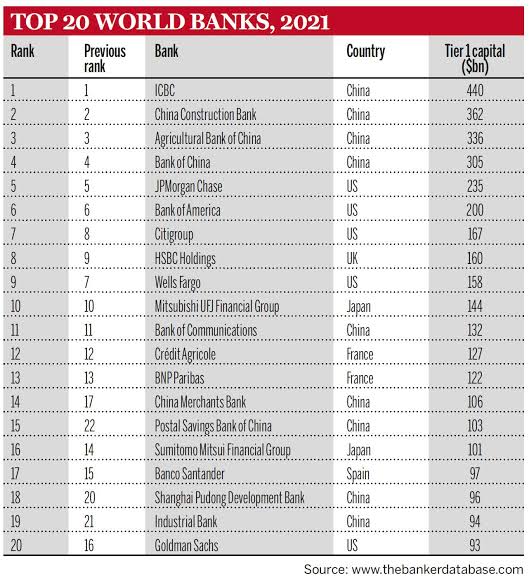
Let's come to the issue of multinational companies sweeping the profits created by China's industrial production. In 2020, about one-third of the world's industrial production was made by China. The USA carries out industrial production at almost half its capacity. The argument of "super-profits are actually transferred to the West" in a country with this production capacity is actually wrong from the beginning but let's look at the data again. Firstly, Chinese companies dominate the list of the world's largest companies. Secondly, Chinese dollar billionaires, almost exclusively first-generation riches, have become the world's richest. According to the 2021 Hurun Global Rich List, one-third of the world's richest people are Chinese. China has long ceased to be the world's cheap labor paradise. Thanks to the struggles, the wages of Chinese laborers rose. As a result, labor-intensive industries have even shifted towards other countries of East Asia for cheaper labor. The great wealth created by the Chinese workers, on the other hand, actually goes to the coffers of the Chinese capital, as can be seen from the data.
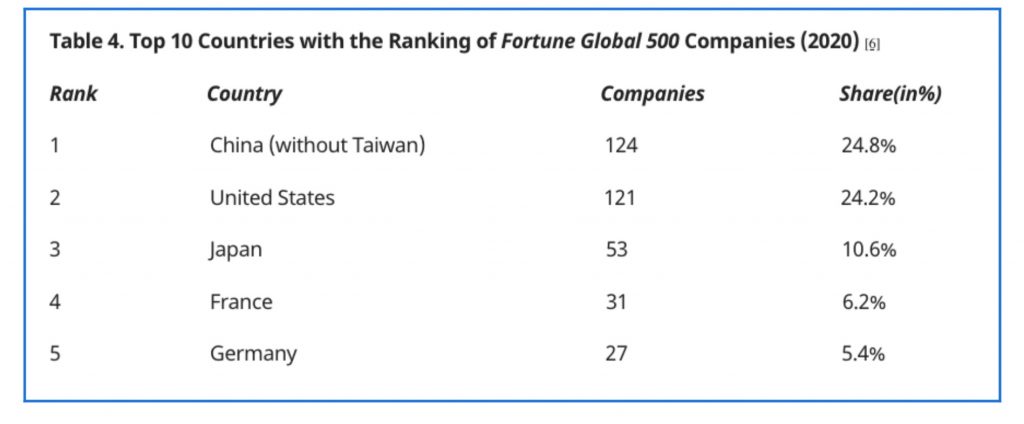
Let's come to the last argument; backwardness in technological competition. It has been a long time since China became a predominantly labor-intensive production center. China has advanced in some technological areas to a degree that makes the USA nervous: cloning, semiconductors, quantum, artificial intelligence, and robotics. Huawei, which has advanced in 5-G technology, must have annoyed the USA so much that the company's top executive was arrested in Canada at the request of the USA; Huawei Company is banned in Australia and UK. Even the fact that China's share in global industrial robot production increased from 3.2% in 2010 to 31% in 2020 is enough to understand the situation of China in the field of high technology.
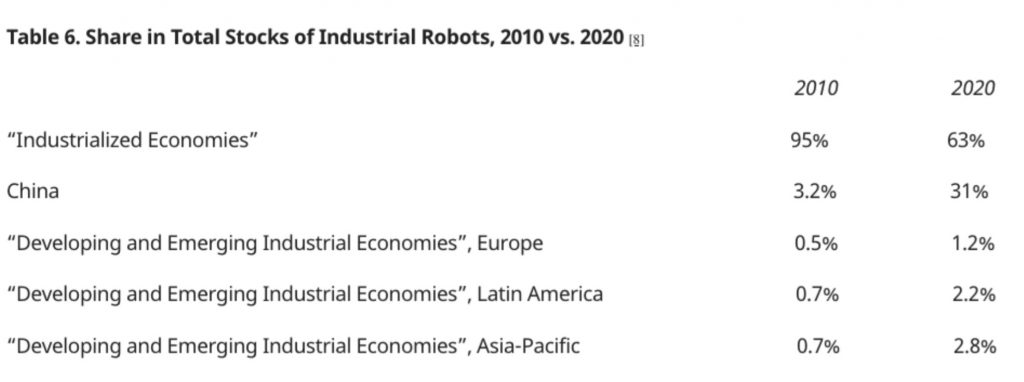
China is deeply occupied with completing its economic success with military force in the environment of increasing global tensions. After Xi Jinping came to power in China, Chinese foreign policy became increasingly tough. In this context, they invested heavily in the navy, and their military expenditures amounted to 250 billion dollars. But the USA is still the world's largest military power. It alone accounts for about 40 percent of the world's military spending and allocates a budget of $800 billion to maintaining and expanding its military power. There are 800 US military bases in various parts of the world. For China, this number is limited to 2-3. Therefore, China needs time to catch up with the United States in terms of military power. In this process, the USA, with the effect of its military and political power, is trying to slow down the growth of China and hinder the progress of its rival. For this, it is going to establish an anti-Chinese bloc with Taiwan, Japan, South Korea, Vietnam, the Philippines and even Australia, one of China's biggest trade partners, in the Asia Pacific.
Russia’s Position
In order to evaluate Russia's position correctly, it is necessary to consider the economic, military and political power of this country within the imperialist hierarchy. Russia is the second largest power in the world after the USA in terms of military industry. Russia realizes 20% of world arms exports. Russia's arms exports represent a huge power that predominates the rest of the states after the US's 37% share. Not surprising that the West wants to stand back militarily while making a great fuss in the occupation of Ukraine today. The United States has even made it clear that a potential war between Russia and NATO would mean the Third World War. Since the parties to the new world war will be imperialist countries today, as in the past, the USA will want to weaken Russia in Ukraine instead of entering into a hot conflict with nuclear-armed Russia.
Russia experienced an economic depression after the collapse of the Eastern Bloc in 1991. Between 1989 and 1998, production fell by 45%. The rapid transition to free market capitalism with neoliberal policies led to the plunder of the country's resources, economic collapse and accelerated poverty of the people.
Russia's economic recovery was made possible by rise of oil prices in 2000s. However, from 1986 to 1999, oil barrel prices had fluctuated at the level of 10-20 dollars. But during the years of Putin’s surprising accession to power, oil prices rose to 50 and then 100 dollars in a few years. According to the calculations of Russian economists, between 1999 and 2008 Russia's Gross Domestic Product grew by 94% and per capita income doubled. As Russia became economically stronger, it tended to modernize its military technology, diversify its economic activities and consolidate its influence in the former USSR territory.
Russia is one of the world's leading oil and gas producers and the largest global exporter of metals such as steel and primary aluminum. Russia has huge energy revenues and a very strong gas pipeline network. It ranks eighth in world crude oil reserves with a power of 80 billion barrels. In terms of actual production, it ranks second with a daily production of 100 million barrels. Russia is considered the first in the world with its proven natural gas reserves of 48 trillion cubic meters and exports one third of its annual natural gas production of approximately 665 billion cubic meters. With the sale of natural gas as well as crude oil, Russia generates an annual income of 380 billion dollars from exports. Therefore, this wealth of energy makes Russia's dominant monopoly capitalist class and their leader, Putin, resistant to economic embargoes and sanctions by the US and its partners.
It is also important to understand the structure of the ruling class in Russia well. Stalinist elites held the cornerstones in the newly established regime after the collapse of the USSR: apart from those who continue to be bureaucrats, those who are capitalists, those who make politics, those who turn into mafia leaders... When the USSR collapsed, almost none of the privatizations in Russia were sold to foreigners, unlike other countries. Opportunists, many of whom were the elite of the USSR era, and thus had the necessary connections, suddenly became super-rich. These new-sprung super-rich, oligarchs, also had considerable political influence with the power they gained in the 1990s, but as Putin grew stronger, he either liquidated these monopoly capital elites or forced them to cooperate. Thus, there was a process in which monopoly capital and the state were intertwined in a network of mafia relations.
According to the calculations of the United Nations Conference on Trade and Development (UNCTAD), “at the end of 2017, the 15 largest multinational enterprises in Russia (excluding the major state banks VTB and Sberbank) accounted for 28% of the country's outward foreign investment.”
Although state-owned companies dominate this list, 9 out of 15 companies are privately owned. In 2017, four of these 15 multinational companies outside the financial sector in Russia operate in metallurgy, four in oil and natural gas, two in transportation, one in chemistry and one in nuclear energy.
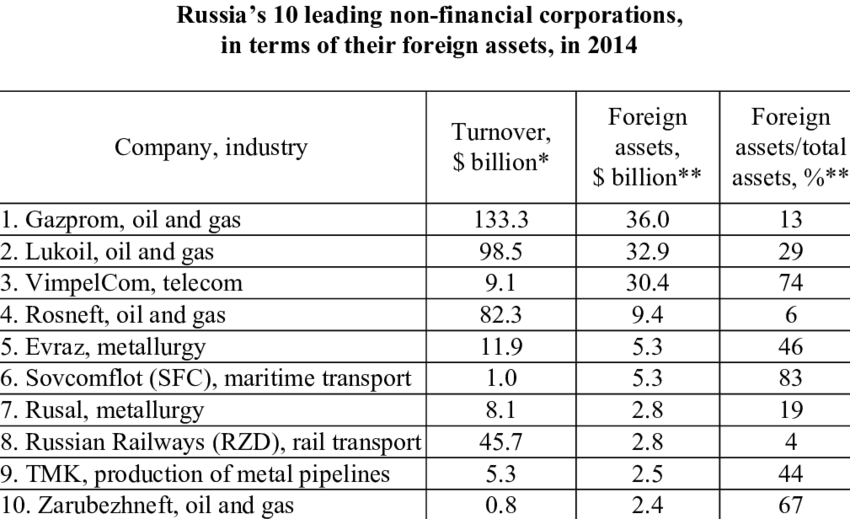
The Russian economy is originally controlled by Russian monopoly capital. The privatizations that started after the collapse of the Eastern Bloc in the country were taken by the remnants of the old ruling class. Huge corporations based on state-capital partnerships in the energy sector are also a secondary source of fuel for the oligarchs. At the end of 2021, the investment rates of Russian, foreign and joint ventures in the country were respectively: 86.3%, 7.3% and 6.4%. The share of foreign banks in the banking system decreased from 23% in 2014 to 14% in 2018. Of these, 11% of foreign banks are controlled by domestic residents.
The country does not have a significant debt to an international imperialist organization, due to its wealth of natural resources and to avoid creating economic vulnerability in the face of sanctions. The public debt is also limited to 18% of the Gross Domestic Product. In order to increase economic resilience, the country's foreign exchange reserves were also 630 billion dollars, making up the world's fifth largest reserve amount as of 2021.
In Russia, where the energy industry is the backbone of the economy, the national income is around 1.7 trillion dollars and it produces 2 percent of the world product. According to the "Forbes Global 2000" list, there are 10 companies in Germany, 4 companies in France, 3 companies in England and 2 companies in Russia among the world's top 100 companies.
If we rank the world's largest powers in terms of Gross Domestic Product (GDP), which expresses the size of the country's economies, it comes out as the 11th country.
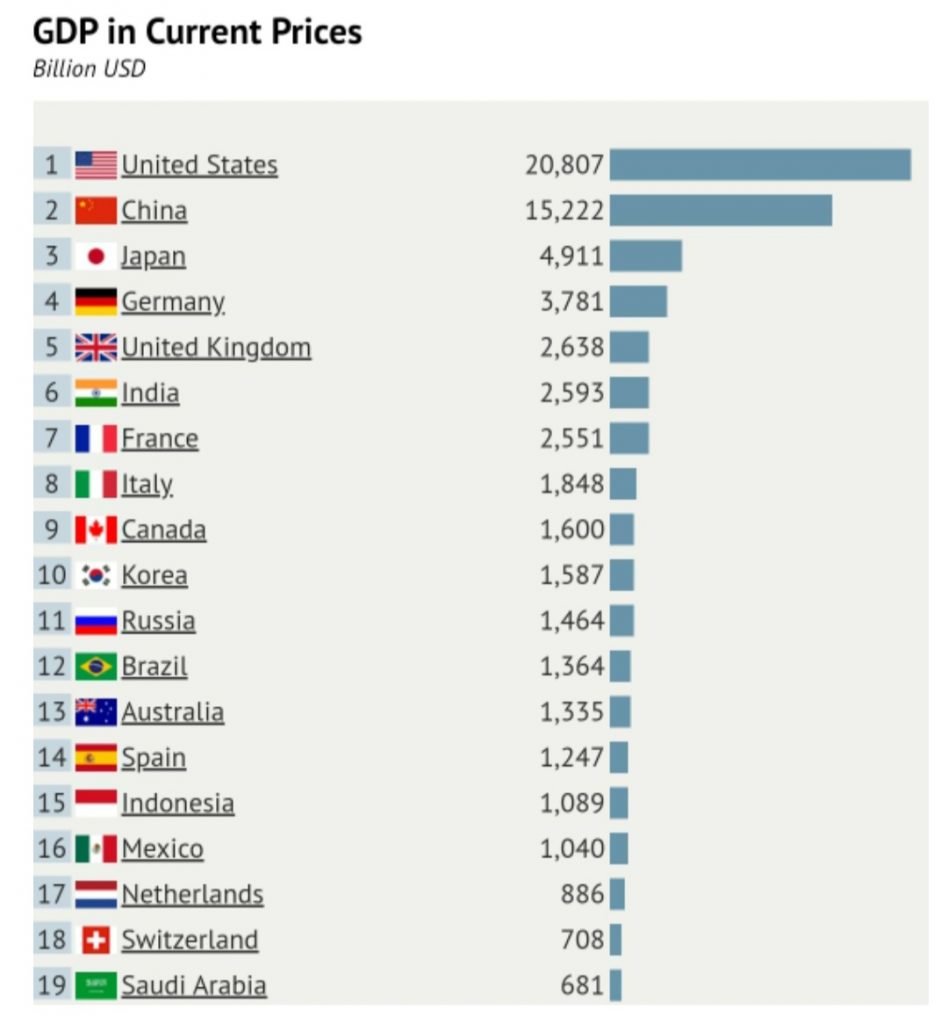
When we organize the Gross Domestic Product ranking by purchasing power parity, -comparing the current currencies of different countries with the value of goods and services- Russia moves up to the 6th economy.
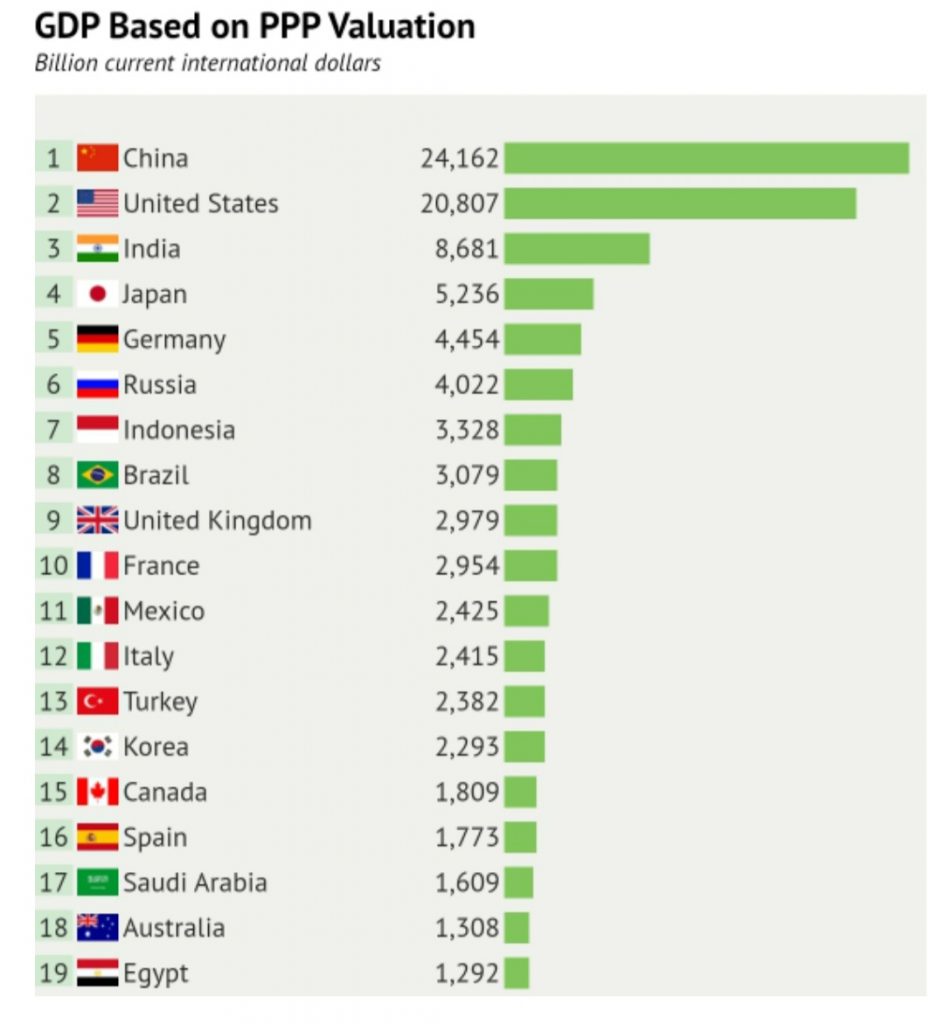
Conclusion
We must keep in mind that the imperialist hierarchy, contradictions and polarizations are not static but variable. In the 1990s, the United States was at the height of its power and leadership capacity as the sole superpower. But in the intervening 30 years, the world did not remain the same. China has continued its economic breakthrough by accelerating and it is shaking the throne of US imperialism with firm steps. That's why the US wants to give its main weight to East Asia, because it doesn't have the economic and military power to dominate everywhere and it doesn't have a playmaker political leadership there. That's why the US is leaving the Middle East, its dominant point in the past, step by step. It did not interfere in Libya, Yemen and Syria, left Afghanistan in disgrace and is trying to get out of Iraq... This gap was filled by local powers (Iran, Turkey, Israel) and Russia, which wants to become a great power again. It left its mark on Syria, the former USSR sphere of influence, strengthened its bases in Latakia, and snatched a lot of concessions from the Damascus regime. It then intervened militarily in Libya.
Earlier (2008), Russia had devastated Georgia, which was supported by the West. As Putin grew stronger, he constantly tried to revive the imperial ideology of the Tsarist era. On the one hand, it condemns Lenin and embraces the Stalinist legacy of the USSR, on the other; it strengthens the Tsarist legacy, the imperial tradition, and at the same time, the Orthodox Church.
For sure, on the other side of the issue, there is an effort to become a block. Russia, together with China, is the architect of Eurasianism. This is of course problematic, although it is a union where the parties do not trust each other, but the US pressure brings these two great powers closer to each other.
Since Russia accepts the borders of the Tsarist period as its natural borders, it is in a constant effort to intervene against the countries within these borders. It sends its special military force to suppress the popular revolt in Kazakhstan; settles in the region as a peacekeeping force after the Azerbaijan-Armenia war; intervenes in every way so that the administrations in Eastern European countries become pro-Russian; invades Crimea… So it's not just dreams. It's easy to dream, of course; every bourgeois state dreams. What is decisive is the power to take action, to shape international politics. Russia intervenes in interstate relations to be a playmaker with its military, political and economic power; it makes moves to dominate those powerless than itself and conducts economic-geopolitical competition with its peers.
If you compare Russia's economic power with the USA, of course it will be in vain. But today Russia has a larger economy than some of the countries considered imperialist countries. When we evaluate the military and political power of Russia and the capacity of its economy dominated by local monopolies, it becomes an indisputable fact that Russia is an imperialist country. This is what needs to be done: to grasp the place of Russia, which is defying NATO led by the USA, while having the economic power for this defiance, and China, which has become the engine of the world economy and tough in geopolitical competition, within a system of global economic and geopolitical competition.
Let us finish the article with an important emphasis on anti-imperialist politics. It is not the revolutionaries’ business to hold one of these two camps in the tensions and conflicts that have developed or may develop between the Russia – China front and NATO. Attributing any kind of progressiveness to Russia and China renders all socialist calls for equality and freedom meaningless. Taking Russia's side against NATO today will mean exactly this. Those who call for the Eurasian camp today should join the ex-Maoists who are now supporting Erdoğan . Since our own ruling class is in NATO, we will undoubtedly criticize NATO and the NATOists in the harshest way and continue our struggle against them. But this does not mean that we will be Eurasianist. Revolutionary socialists cannot have an attitude of defending one of the imperialist powers against the other.




